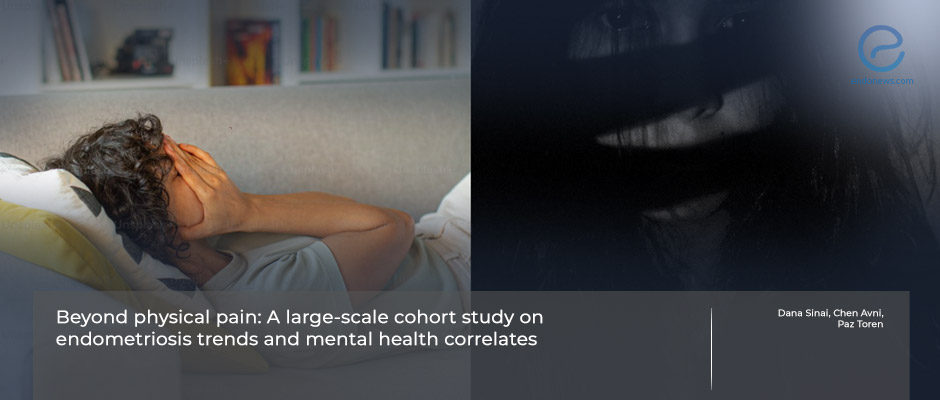Endometriosis and mental health disorders: How associated are they?
Jun 13, 2024
Large cohort study shows the increased rate of psychopathologies in patients with endometriosis
Key Points
Highlights
- Comprehensive mental health assessment and tailored care for women with endometriosis to improve overall well-being is crucial.
- Endometriosis patients are under a significant psychiatric burden compared to matched controls.
Importance
- Understanding the rising trend in endometriosis diagnoses over time provides insights into increased awareness and diagnostic practices.
- There is a necessity for integrated care and early psychiatric interventions in endometriosis patients.
What’s done here
- A retrospective cohort study was performed using a large national health database in Israel.
- It aimed to understand the mental health burden associated with endometriosis and explore the relationship between psychiatric conditions and endometriosis diagnosis.
Key results
- The prevalence of endometriosis diagnosis varied between different populations and socioeconomic levels.
- Patients born after 1973 were more likely to get diagnosed with endometriosis.
- Higher rates of psychiatric diagnoses and medication usage in endometriosis patients compared to controls were shown.
- There was an increased risk of mood disorders, eating disorders, personality disorders, and post-traumatic stress disorder in endometriosis patients.
- Psychotic disorders were less prevalent in the endometriosis group.
- The diagnoses of mental health disorders preceded the diagnosis of endometriosis.
Limitations
- Potential surveillance bias due to the use of a gradual electronic medical record system and data reliance on clinician-recorded diagnoses
- Findings may not be generalizable to different healthcare settings or cultural contexts.
Lay Summary
As with any chronic condition, endometriosis does not only present with physiological problems. The association between endometriosis and mental health issues has been widely studied and it is now known that these patients undergo depression, anxiety, and even bipolar disorder along with the physical symptoms causing a diminished quality of life. It is believed that the mental health burden that these patients are under because of all the things that they go through from delay in the diagnoses to misdiagnosis and mistreatment is not fully understood.
Intending to evaluate the mental health problems that endometriosis patients go through on a larger scale, Sinai et al. from Israel conducted a retrospective cohort study which was recently published in the May 2024 issue of the Journal of Psychosomatic Research.
The study included data on around 1,3 million people in the national health database between 2014 and 2019 with 24,259 endometriosis patients. Demographic information, psychiatric diagnoses, and use of medication were assessed. Statistical analyses were used to compare the endometriosis and control groups in terms of mental health indicators.
Three main areas including changes in endometriosis diagnosis over time, the presence of psychiatric comorbidity, and the timing of the psychopathology and its relationship with endometriosis diagnosis were evaluated. The varying diagnosis rates across different populations and socioeconomic levels were noted. The authors commented that factors like stigma, cultural norms, and limited healthcare access influenced diagnosis patterns, particularly in Arab and Orthodox Jewish communities. An increase in the prevalence of endometriosis diagnoses, particularly among women born after 1973 was seen which may indicate problems in diagnosis in the older age group. There were higher rates of psychiatric diagnoses and medication usage in endometriosis patients compared to controls, with increased risks for mood disorders, eating disorders, personality disorders, and post-traumatic stress disorder. Psychotic disorders were less prevalent in the endometriosis group. Lastly, it was seen that there was a significant pattern of mental health diagnoses occurring before or after endometriosis diagnosis. The authors emphasized the importance of timely diagnosis in managing mental health outcomes.
The study shows the need for targeted strategies to address healthcare disparities and the association between endometriosis and various psychiatric disorders. The authors conclude by calling for a nuanced approach to women's healthcare, prioritizing both physical and mental health aspects. They add that by addressing these complexities, the health and well-being of this population can be improved, ensuring all women receive compassionate care.
Research Source: https://pubmed.ncbi.nlm.nih.gov/38795400/
endometriosis mental health anxiety mood disorder depression

